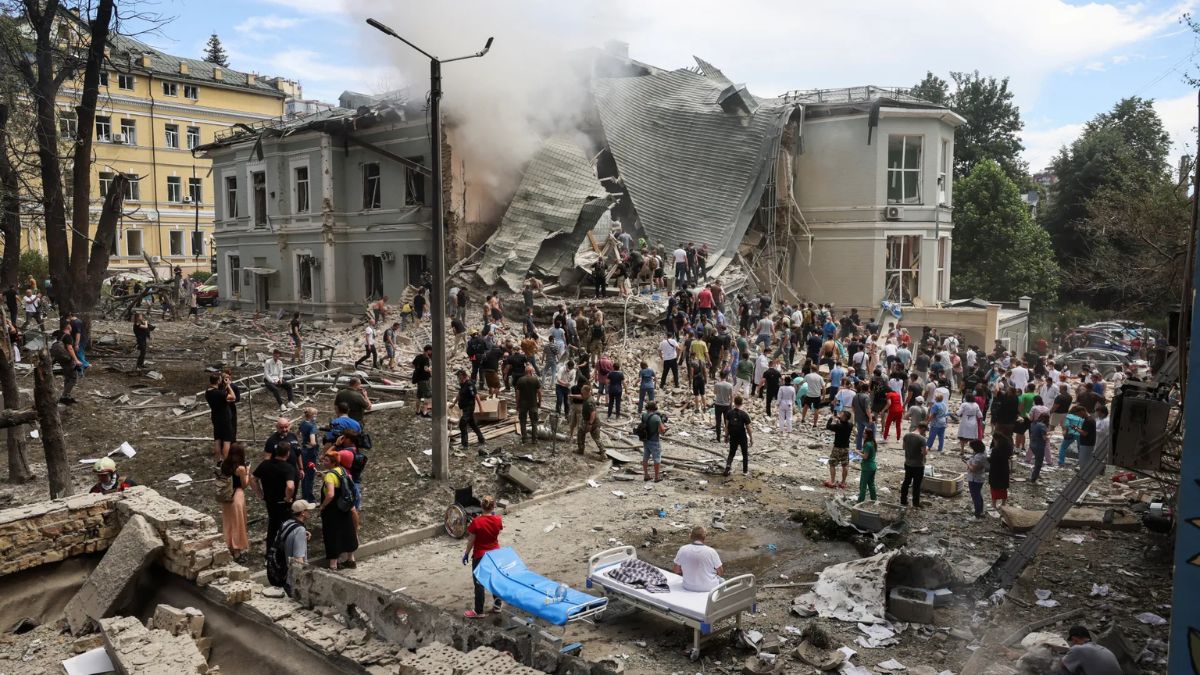Military leaders often shy away from overt control as nations evolve. The trend speaks to fewer outright military regimes, unlike Myanmar. Yet, while many countries shift from direct rule to softer authoritarian forms or even democracy Mynmar, despite welcoming an elected government in 2011 now finds itself in the clutches of military governance again albeit.
Hot with the stir of Military takeover, Myanmar
After Myanmar shook off British rule, the military seized supreme power over the nation’s economic and social systems. Thanks to this grip, Myanmar is viewed now as the globe’s most enduring nation under military leadership.
Myanmar broke free from the UK and was called Burma due to the main ethnic group. Various rebel groups popped up across its lands. The army grabbed hold of these rebellions, and for a bunch of other reasons, it got a ton of power. They beefed up their military might, but this meant they kinda forgot to look after the nation’s growth. So now, we see what’s up; “a military spillover around the country ranging from using its resources to responsibilities and powers in a country which was used to be controlled in a non-military realm” (Callahan 2003).
Much like the election back in 1954 in the old Pakistan, Burma’s military rulers promised in 1988 to surrender power to folk’s chosen reps and to turn their nation into a total democracy. But when the time came, they didn’t pass the control to the National League for Democracy (NLD) even after it won the election in 1990. Since then hiding behind a temporary government, the military said hurdles were stopping the country from becoming a democracy all because there wasn’t a constitution.
In 2003, the military set out a clear plan to become a “democratic nation” and promised to hand over control to the nation’s elected leaders. Once they managed to craft a new constitution, they organized elections involving multiple parties in 2011. These elections though, leaned in favor of the military. As a result, the country saw the establishment of a civilian government that same year.
Different from both strict and free forms of rule, a sudden takeover by the military broke countless dreams of a calm life under democracy. This abrupt power grab happened in Myanmar on February 1, 2021.

Myanmar’s Struggles under Military Rule
Since the end of British administration, Myanmar’s past isn’t filled with happy recollections for the locals. The junta’s iron-fisted rule subjected the country and its citizens to relentless civil conflict spread across its lands shoddy governance structures, and widespread poverty that snuffed out any chance for peaceful existence.
Relative to neighboring lands, Myanmar turned into a nation lacking wealth due to failing to hit the marks of economic efficiency since gaining independence. The nation known as Tatmadaw rolled out a fresh take on the old ruling approach. This shift could steer Myanmar back to the unrest it saw pre-2011.
Former lawmakers and activists led the formation of a shadow government to challenge the new ruling power. They spread out their forces across various regions to combat the established party’s takeover. The military responded with harsh suppression in the fields; however, they haven’t yet seized complete control, since many parts of the country remain under the possession of protestors.
The military cop has plunged the country into economic chaos. What we’ve achieved in cutting down poverty over years is slipping away, bit by bit. More folks are falling into poverty. It’s gotten pretty bad. A report notes the nation’s economy shrank by a huge 20% back in 2021. When the pandemic hit, they struggled, not having enough health care to go around. Joshua Kurlantzick from CFR made a comment – he thinks Myanmar’s heading down the path of a country that’s on the brink of collapse.
First off, you’ve never seen anything like this before. Myanmar got hit with these same troubles when their military first took over. All because the ruling group there, that junta, decided not to play nice with others. So from the 1960s to the 1970s, this spot was way poorer than the places next door.
Myanmar’s new junta phase now grapples with a cash crunch that’s even biting into simple transactions. Civil unrest and sheer political chaos coupled with a major economic clampdown; loads of foreign business outfits are packing up leaving Myanmar behind. Plus, a heap of countries are dishing out sanctions on the nation. Folks looking for exotic getaways are giving Myanmar the cold shoulder, despite its treasure trove of natural beauty begging to be explored. Once upon a time, its tourism industry hustled real hard to buff up the economy after the 2011 military shake-up.
On the flip side, concerning Myanmar and the quest for democracy through Western eyes:
“Derek Chollet, the counselor of the US state department mentioned in a phone brief for the military coup’s second anniversary in Myanmar, ‘At this point, we are not tossing in the towel soon since our strong wish is to avoid witnessing and marking the third anniversary of this military takeover. We’d much prefer to witness Myanmar swinging back to its democratic ways again.'”
Chollet stated that nations such as the US, UK, Australia, and Canada show support for Myanmar’s citizens and unite to confront the nation’s military coup. The partnership’s response to Russian military aid to Myanmar concerns him, and he does not endorse it.
To curb this kind of support among the countries, the US is taking steps. Coordinating with groups like the UN and ASEAN, the US aims to restrict Myanmar’s junta’s control and hold them responsible for their actions, explained Chollet.
The US seems set to ramp up pressure on Myanmar’s junta government to bring back democracy throwing its weight behind supporters of democratic change. Last year’s end witnessed the US Congress passing a Burma act aimed at laying down strict restrictions on Myanmar’s military rulers and ensuring vital aid gets to those in need.




